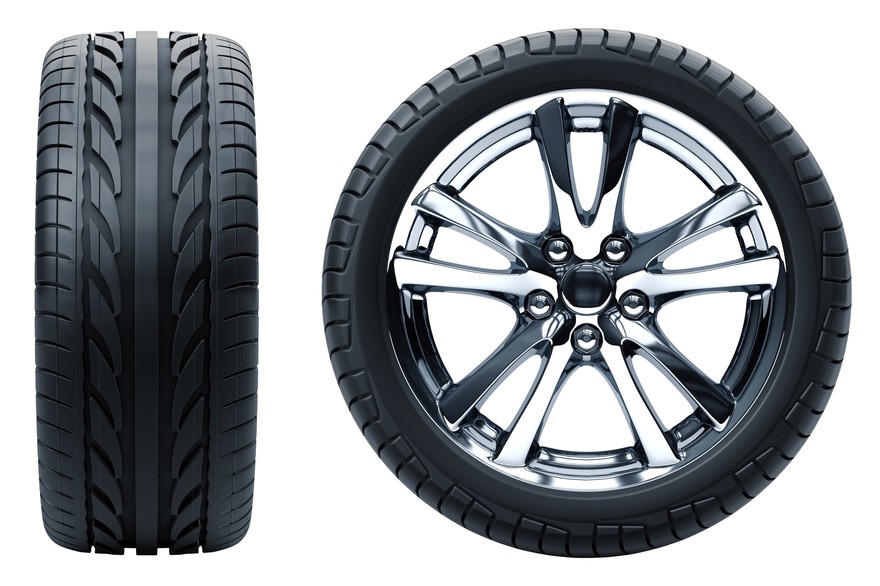The automotive industry is going electric. Every major automaker is actively developing or already selling electric vehicles (EVs).
Tesla (TSLA +3.75%) is the industry pioneer. Rivian (RIVN +4.35%) shipped its first truck in 2021 and is ramping up production as quickly as it can. And Ford (F +0.50%), General Motors (GM +0.61%), Volkswagen (VWAGY +0.00%), Mercedes-Benz (DAI -0.39%), and other carmakers have been working to make EVs profitable.

One of the biggest challenges for automakers in the shift to EVs is profitability. Both Ford and GM cut back on production in 2024 since they couldn't get their electric vehicle prices down far enough to stimulate more demand. One of the biggest costs for EVs is the battery, and Ford said it's pushing back the production of its F-150 Lightning to 2027 to take advantage of lower-cost battery technology.
There's a clear demand for electric vehicles at the right price point. Investors who want to get ahead of that demand can do so by looking at the companies producing EV batteries, the most important and costly components of EVs. If electric vehicle production significantly increases over the next decade, the demand for EV batteries will skyrocket similarly.
Nine best electric vehicle battery stocks in 2025
These are the top EV battery stocks for investors to consider:
| Name and ticker | Market cap | Dividend yield | Industry |
|---|---|---|---|
| Tesla (NASDAQ:TSLA) | $1.5 trillion | 0.00% | Automobiles |
| Toyota Motor (NYSE:TM) | $270.1 billion | 1.67% | Automobiles |
| Honeywell International (NASDAQ:HON) | $127.0 billion | 2.13% | Industrial Conglomerates |
| BYD (OTC:BYDD.F) | $118.9 billion | 4.25% | Automobiles |
| Li Auto (NASDAQ:LI) | $17.0 billion | 0.00% | Automobiles |
| Albemarle (NYSE:ALB) | $11.5 billion | 1.65% | Chemicals |
| Panasonic (OTC:PCRF.F) | $28.2 billion | 2.66% | Household Durables |
| QuantumScape (NYSE:QS) | $9.6 billion | 0.00% | Auto Components |
| Solid Power (NASDAQ:SLDP) | $966.2 million | 0.00% | Auto Components |
1. Tesla

NASDAQ: TSLA
Key Data Points
Tesla (TSLA +3.75%) is the largest auto manufacturer by market cap, exclusively building electric vehicles. While it partners with several suppliers for batteries, it's behind the designs. It's also ramping up its own production of its own batteries, but it's facing challenges with its processes in providing viable cathodes. The company retooled one factory in early 2025 in an effort to fix issues with production.
Tesla has a built in customer for its battery production if it can successfully ramp up its 4680 battery. It plans unique versions for its cybertruck, robotaxi, and other electric vehicles. That said, Tesla auto sales have been falling as competition enters the market, especially in Europe. Investors are hoping the introduction of its robotaxi service is met with strong demand, which will push more Tesla vehicles onto the streets.
2. Toyota Motor

NYSE: TM
Key Data Points
Toyota (TM -1.46%) is already one of the leading car manufacturers in the world, but it trails the competition when it comes to electric vehicles. The Japanese company's plan to catch up involves in-house battery manufacturing and technology development.
It acquired its battery joint venture with Panasonic in early 2024, now called Toyota Battery, and plans to ramp up fully electric vehicle production to 1 million units by 2030. The company is developing solid-state battery technology, which it plans to start producing in 2026. Solid-state batteries could provide owners with several benefits, including extended range and faster charging.
It's a challenge many smaller companies are working on. However, Toyota has the advantage of a well-established and profitable auto manufacturing business to support the cash drag of the development process. If Toyota becomes a full-fledged EV battery manufacturer, it's well positioned to make it a profitable endeavor through integration with its popular vehicles.
3. Honeywell International

NASDAQ: HON
Key Data Points
You might know the Honeywell (HON +0.68%) name because it designed your home thermostat, but Honeywell does a lot more than make simple AC systems for single-family homes. It designs safety systems for commercial buildings, avionics systems for commercial airlines and the military, and systems to automate safety and efficiency in various work environments.
Honeywell doesn't design EV batteries itself. Instead, it uses its expertise in safety automation to make them safer. Battery manufacturers can include Honeywell's technology in their battery packs to prevent fires. Honeywell's systems can detect thermal runaway by sensing off-gassing or particulate matter providing ample time for a driver to stop the car and seek repairs before a battery fire.
While the battery safety business is a tiny part of Honeywell, the growing trend toward battery-only vehicles provides an ample runway for growth in the segment.
4. BYD

OTC: BYDDY
Key Data Points
5. Li Auto

NASDAQ: LI
Key Data Points

NYSE: ALB
Key Data Points

OTC: PCRF.F
Key Data Points
8. QuantumScape

NYSE: QS
Key Data Points
9. Solid Power

NASDAQ: SLDP
Key Data Points
How to choose EV battery stocks
There are a lot of different ways to invest in EV battery stocks: you can buy manufacturers, suppliers, auto companies, battery pack component producers, or companies that integrate multiple aspects of those businesses. But a successful investment in an EV battery stock will find a company with solid financial footing, unique competitive advantages, and a long runway for growth. If you can buy a company with those three characteristics at a fair price, you're very likely to make a successful investment.



